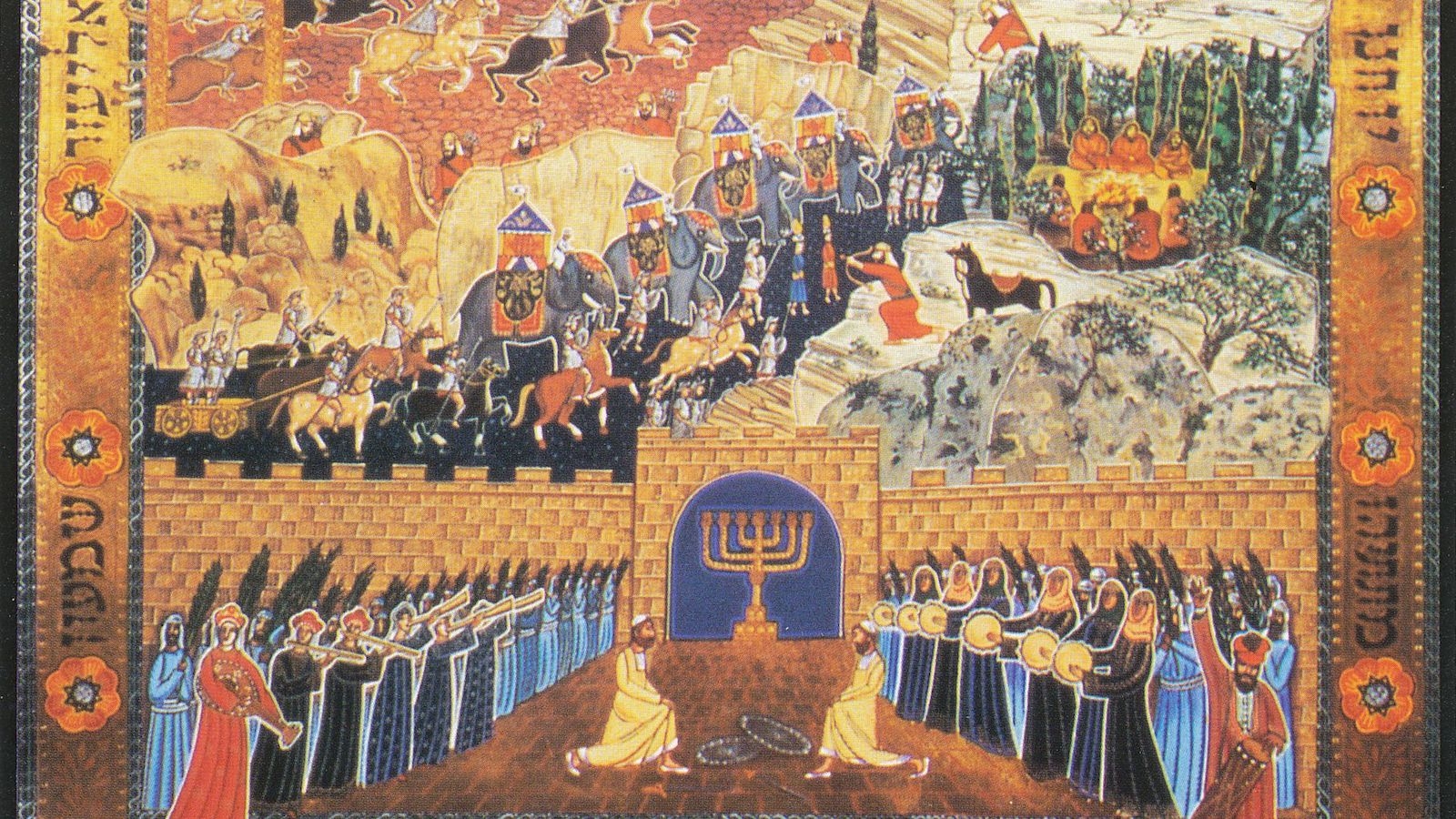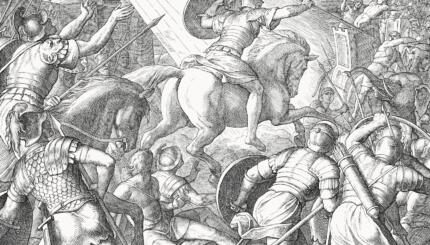A year after the Maccabees’ triumph at the Temple, the Hellenists still refused to give up their fight. Displeased that the “old-fashioned” Jews were once again in religious power, and that Torah law had been reinstated in Judea, they repeatedly invited the Seleucids to send more troops.
Political maneuverings in Syria on more than one occasion saved the Maccabees by frightening the Syrian commanders home after hurried peace negotiations with Judah to protect their personal positions. Yet the war dragged on for a generation. Eleazar died in the battle against Nicanor and his elephants, then three more of Mattathias’ sons lost their lives, including the seemingly invincible Judah.
In 142 BCE, Simon, the last survivor of the Maccabee brothers, was recognized as high priest and political leader by his own people. He severed bonds of allegiance to the Syrian rulers, got the Greek garrison out of Jerusalem, and began to mint his own coins, the first ever by a Jewish state. He was succeeded by his son John Hyrcanus, who established the Hasmonean dynasty. (The term first introduced in Talmud may have been Mattathias’ family name, from his grandfather, Simon Hasmonai, or a designation meaning prince, possibly related to the position of priesthood.)
Taking control of the kingship violated the people’s trust because it transgressed Torah: The Bible stipulates (Genesis 49:10) that the kingship should always rest in the tribe of Yehudah (descendants of Jacob’s son Judah), as it did once David’s line was established. It was to be separated from the priesthood, which comes out of the tribe of Levi (from which Aaron descended [Numbers 3:6-9]), to balance the secular and the spiritual. The Hasmoneans, though Kohanim of the tribe of Levi, were not in line for the high priesthood or for political leadership, which they usurped. [This is the author’s interpretation of events.]
With your help, My Jewish Learning can provide endless opportunities for learning, connection and discovery.
What began in glory ended in ignominy. The nine Hasmonean rulers to be recognized by the Roman senate engaged in the same political intrigues, self- aggrandizement, and bloodshed as the previous regime. When two brothers who were not eligible claimed the kingship, they called on a representative of Rome to arbitrate. Foolishly repeating the mistake of the Hellenized Jews, the contending brothers opened the door to the Roman conquest, which ended their rule (when Herod killed the last of them) after just 103 years and ended Jewish sovereignty in Israel for almost 2,000 years.
The Hasmoneans’ early triumphs were soon shadowed by their corruption. Due to the unpopularity of its founders, Hanukkah itself came to be largely ignored within a few decades after its origins. Then when Rome’s crushing power began to be felt in Palestine, the people recognized in Hanukkah a message of hope that new Maccabees would rise and independence would be restored. The holiday came to be seen in an entirely different light.
Excerpted from Celebrate! The Complete Jewish Holiday Handbook. Reprinted with permission of the publisher. Copyright 1994 by Jason Aronson Inc.
Hanukkah
Pronounced: KHAH-nuh-kah, also ha-new-KAH, an eight-day festival commemorating the Maccabees' victory over the Greeks and subsequent rededication of the temple. Falls in the Hebrew month of Kislev, which usually corresponds with December.
Talmud
Pronounced: TALL-mud, Origin: Hebrew, the set of teachings and commentaries on the Torah that form the basis for Jewish law. Comprised of the Mishnah and the Gemara, it contains the opinions of thousands of rabbis from different periods in Jewish history.
Torah
Pronunced: TORE-uh, Origin: Hebrew, the Five Books of Moses.



